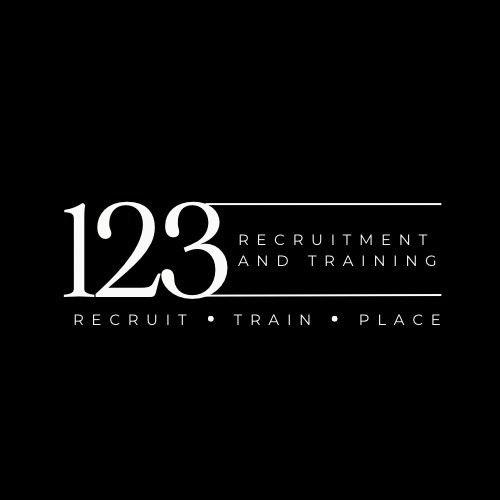In the competitive business world, corporate training is essential for workforce development and organizational success. To ensure training programs are impactful, leveraging the right corporate training keywords is crucial. These keywords help businesses align training content with industry trends, improve searchability for learning resources, and focus on areas that drive growth.
In this blog, we’ll explore the significance of corporate training keywords, how to identify them, and how to use them effectively.
What Are Corporate Training Keywords?
Corporate training keywords are specific terms and phrases related to learning and development (L&D) within organizations. They reflect the skills, tools, and concepts relevant to a company’s training needs and goals. These keywords guide the design and delivery of training programs and improve visibility for learning materials in digital spaces.
For example:
- Soft skills training
- Leadership development
- Employee engagement strategies
- Diversity and inclusion training
- Agile project management
Why Corporate Training Keywords Matter
- Align Training with Business Needs:
Identifying the right keywords ensures training programs focus on skills and competencies that support organizational goals. - Improve Content Discovery:
Using the right keywords makes training resources easier to find, both for internal employees and external learners. - Optimize Learning Outcomes:
Keywords help tailor training content to address current industry trends and future workforce needs, maximizing its impact. - Enhance SEO for Training Programs:
When offering online training or resources, incorporating keywords can improve search engine rankings, increasing visibility and reach.
How to Identify the Right Corporate Training Keywords
- Analyze Business Goals:
Align keywords with the skills and competencies needed to achieve strategic objectives. For example, if a company prioritizes digital transformation, keywords like “digital literacy” or “cloud computing training” are relevant. - Study Industry Trends:
Stay updated on trends to ensure your training programs remain competitive. Tools like Google Trends and LinkedIn Learning reports can help identify popular topics. - Consult Stakeholders:
Collaborate with managers, employees, and HR teams to understand skill gaps and training needs. - Use Keyword Research Tools:
Platforms like SEMrush, Ahrefs, or Google Keyword Planner can help identify high-ranking and relevant keywords for your industry. - Analyze Competitors:
Review the training topics your competitors focus on to find potential gaps and opportunities.
Top Corporate Training Keywords by Category
Soft Skills
- Communication skills
- Emotional intelligence
- Time management
- Problem-solving techniques
Leadership and Management
- Leadership development
- Decision-making strategies
- Team building workshops
- Conflict resolution
Technical Skills
- Data analysis training
- Software development courses
- Cybersecurity awareness
- Artificial intelligence basics
Diversity, Equity, and Inclusion (DEI)
- Inclusive leadership training
- Unconscious bias workshops
- Cultural competency
- Workplace equity strategies
Compliance and Safety
- Workplace harassment prevention
- OSHA safety training
- GDPR compliance training
- Ethical decision-making
How to Use Corporate Training Keywords Effectively
- In Training Content:
Use keywords to structure course materials, such as lesson titles, module names, and descriptions. - Marketing Training Programs:
Incorporate keywords in brochures, emails, and advertisements to attract the right audience. - SEO for Online Learning Platforms:
Optimize course titles, meta descriptions, and blogs with keywords to increase discoverability. - Employee Development Plans:
Include keywords in training catalogs or employee growth templates to highlight skill-building opportunities. - Performance Tracking:
Use keywords as benchmarks for evaluating training effectiveness and ROI.
Benefits of Incorporating Corporate Training Keywords
- Focused Learning Paths:
Employees can easily identify relevant training opportunities, leading to targeted skill development. - Enhanced Engagement:
Keywords reflect employee interests and business needs, making training more relatable and engaging. - Improved Business Outcomes:
By addressing skill gaps strategically, businesses can boost productivity, innovation, and employee retention. - Global Competitiveness:
Companies that stay ahead of training trends through effective keyword use can maintain a competitive edge.
Trends in Corporate Training Keywords
- Remote and Hybrid Work:
- Virtual collaboration tools
- Remote leadership skills
- Technology and Innovation:
- AI and machine learning training
- Blockchain basics
- Sustainability and ESG:
- Green business practices
- Corporate social responsibility
- Wellness and Mental Health:
- Stress management workshops
- Employee wellness programs
Conclusion
Corporate training keywords are more than just buzzwords—they are a powerful tool for designing impactful training programs and aligning them with business goals. By carefully selecting and applying the right keywords, organizations can ensure their workforce is equipped with the skills needed for success in an ever-evolving workplace.
Whether you’re an HR professional, a business leader, or a training provider, understanding and utilizing corporate training keywords can make a significant difference in your learning and development strategy.







Leave A Comment